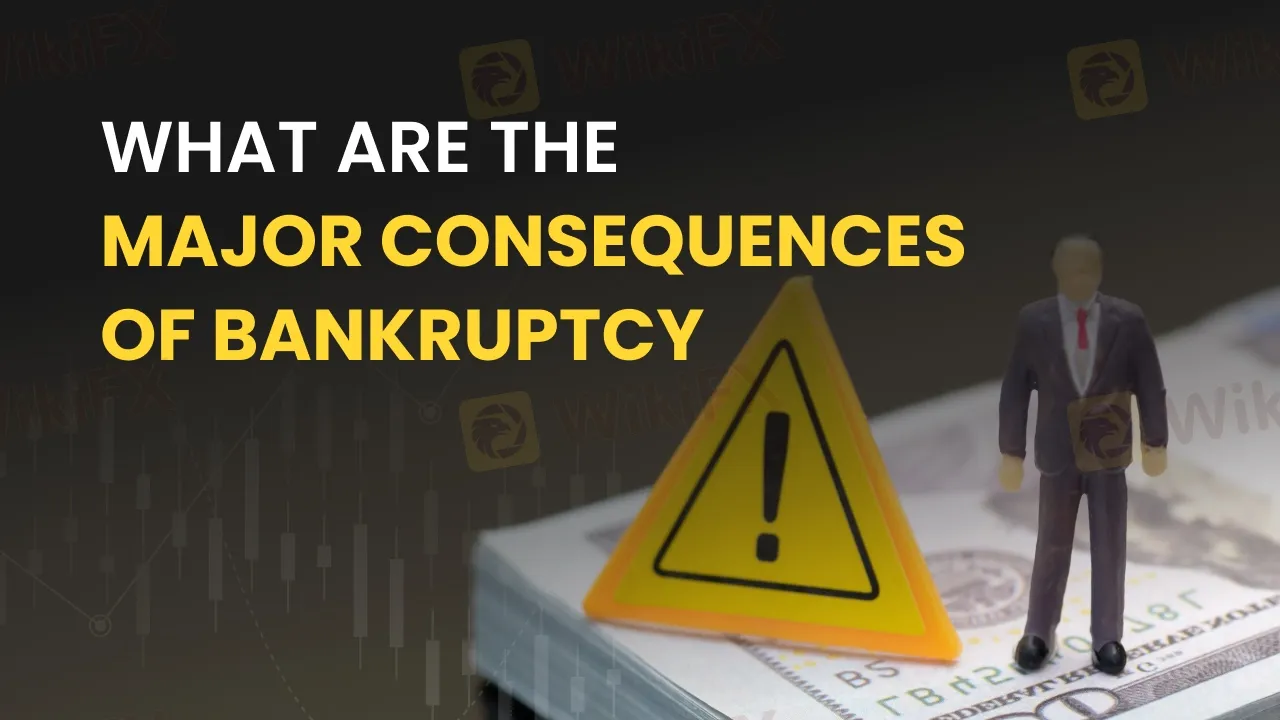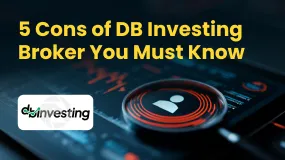简体中文
繁體中文
English
Pусский
日本語
ภาษาไทย
Tiếng Việt
Bahasa Indonesia
Español
हिन्दी
Filippiiniläinen
Français
Deutsch
Português
Türkçe
한국어
العربية
What are the Major Consequences of Bankruptcy?
Abstract:Bankruptcy is a common term we hear every day. But what exactly does it mean? Is it a banking crisis or an investment scam? How does it work, and what happens to people's investments? What are the consequences of bankruptcy? This article explores all of these important questions.

Bankruptcy is a common term we hear every day. But what exactly does it mean? Is it a banking crisis or an investment scam? How does it work, and what happens to people's investments? What are the consequences of bankruptcy? This article explores all of these important questions.
What is Bankruptcy?
Bankruptcy is a legal way to deal with money problems when a person or business cant pay back what they owe. It helps them either cancel some debts or make a plan to pay them off slowly, with help from the court. Bankruptcy is handled by a special court. It can give people a fresh start, but it also hurts their credit score and can make it harder to borrow money in the future.
What Happens During Bank Bankruptcy
1. The bank reports to regulators.
2. Regulators freeze operations and take control.
3. The insured deposits are paid out (usually within weeks or months).
4. The bank may:
· Be sold to another bank (your account is just moved over), or
· Be liquidated (its assets sold to repay debts).
If Bank Gets Bankrupt — What Happens to Your Money?
Most modern banks are covered by deposit insurance, which protects your money up to a certain limit. For example, in India, the Deposit Insurance and Credit Guarantee Corporation (DICGC) guarantees up to ₹5 lakh per depositor. The exact limit varies from country to country.
If a bank shuts down, people with insured accounts usually get their money back—up to the insured amount. But if you have more money than the limit, the extra amount could be at risk. You might get some of it back when the bank‘s assets are sold, but there’s no promise. Those whove invested in the bank, like through shares or bonds, often lose even more.
Stay Informed
If you're interested in reading more informative articles about forex brokers. We recommend you to download WikiFX App. Stay updated with the latest developments in the forex market—including Scam brokers list, Regulatory warnings, Broker News and in-depth Broker Reviews .You can access all this valuable information directly through the WikiFX App or by visiting the News section on the WikiFX website.
Disclaimer:
The views in this article only represent the author's personal views, and do not constitute investment advice on this platform. This platform does not guarantee the accuracy, completeness and timeliness of the information in the article, and will not be liable for any loss caused by the use of or reliance on the information in the article.
Read more

5 Cons of DB Investing Broker You Must Know
It's always advisable to read online review articles about forex brokers you are thinking to Invest your money with. The forex market has become increasingly unsafe due to the rise of fraudulent brokers. Review articles help you spot scam brokers and protect your money. Read this important article about DB Investing to stay fraud alert.

iForex - Where Withdrawal Denials, High Spread & Scams Spoil Your Forex Trading Mood
Are high spreads charged by iForex disallowing you to make profits? Do you feel that you will never be able to withdraw from iForex? It's nothing new! Read this exposure story where we have highlighted complaints from several investors.

Forex Hedging Strategies - Calming You Amid Market Chaos
Finding it hard to deal with the forex market volatility? Do those ups and downs in currency pair prices make you more nervous or worried? You need the right forex hedging strategies. As a concept, forex hedging is about strategically opening additional positions to stay immune against adverse forex price movements. It’s about offsetting or balancing your current positions by buying or selling financial instruments. As a trader, your risk exposure is reduced, hence limiting your potential losses.

Scam Alert: Cloned Broker Scams on the Rise
Reputed authorities like the FCA have issued warnings against brokers who act genuine but are actually fake brokers. They copy details such as logos, names, branding, and sometimes even employee appearances to trick investors and steal money from them.
WikiFX Broker
Latest News
What Is Forex Currency Trading? Explained Simply
LSEG Announces £1 Billion Share Buyback Program
Ultima Markets enters the UK and gains the FCA license
SEC Lawsuit Targets Real Estate Fraud Scheme by Joseph Nantomah
A Beginner’s Guide to Trading Forex During News Releases
Forex Hedging Strategies - Calming You Amid Market Chaos
ASIC Regulated Forex Brokers: Why Licensing Still Matters in 2025
SkyLine Judge Community: Appreciation Dinner Successfully Held in Malaysia
Think Uncle Sam Owes $37 Trillion? It's Far Worse Than That
iForex - Where Withdrawal Denials, High Spread & Scams Spoil Your Forex Trading Mood
Currency Calculator


